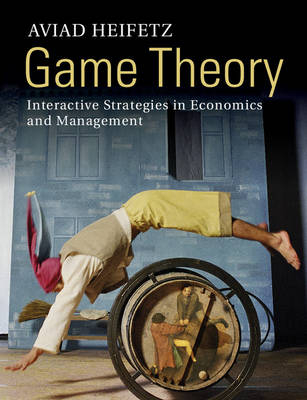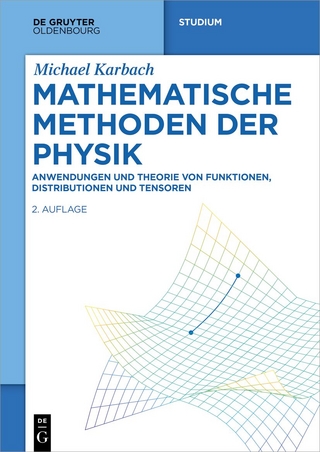
Game Theory
Cambridge University Press (Verlag)
978-0-521-17604-0 (ISBN)
Game theory is concerned with strategic interaction among several decision-makers. In such strategic encounters, all players are aware of the fact that their actions affect the other players. Game theory analyzes how these strategic, interactive considerations may affect the players' decisions and influence the final outcome. This textbook focuses on applications of complete-information games in economics and management, as well as in other fields such as political science, law and biology. It guides students through the fundamentals of game theory by letting examples lead the way to the concepts needed to solve them. It provides opportunities for self-study and self-testing through an extensive pedagogical apparatus of examples, questions and answers. The book also includes more advanced material suitable as a basis for seminar papers or elective topics, including rationalizability, stability of equilibria (with discrete-time dynamics), games and evolution, equilibrium selection and global games.
Aviad Heifetz is Professor of Economics at the Open University of Israel, where he served as chair of the Economics and Management Department from 2006 to 2009. He was previously Visiting Professor of Managerial Economics at the Kellogg School of Management, Northwestern University (2009–2011).
Part I. Strategic Interactions as Games: 1. Strategic form games; 2. Representing strategic interactions with games; Part II. Basic Solution Concepts for Strategic-Form Games: 3. Dominant strategies; 4. Strongly dominated strategies; 5. Weakly dominated strategies; 6. Nash equilibrium; Part III. Prominent Classes of Strategic-Form Games: 7. Cooperation and conflict, strategic complements and substitutes; 8. Concentrated markets; 9. Coordination games and strategic uncertainty; Part IV. Uncertainty and Mixed Strategies: 10. Choice under uncertainty and risk dominance; 11. Mixed strategies; 12. Security strategies, strictly competitive games and the minimax theorem; 13. Mixed strategies in general games; Part V. Advanced Topics in Strategic Form Games: 14. Rationalizable strategies; 15. Stability of equilibria; 16. Games and evolution; 17. Global games; Part VI. Dynamic Games: 18. Extensive form games; 19. Non-credible threats, subgame perfect equilibrium and backward induction; 20. Commitment; 21. Backward induction: limitations and difficulties; 22. Moves of nature; Part VII. Repeated Games: 23. The repeated prisoner's dilemma; 24. Games with unbounded horizon: additional models and results.
| Übersetzer | Judith Yalon-Fortus |
|---|---|
| Zusatzinfo | 70 Line drawings, unspecified |
| Verlagsort | Cambridge |
| Sprache | englisch |
| Maße | 189 x 246 mm |
| Gewicht | 980 g |
| Themenwelt | Mathematik / Informatik ► Mathematik ► Angewandte Mathematik |
| Mathematik / Informatik ► Mathematik ► Finanz- / Wirtschaftsmathematik | |
| Wirtschaft ► Volkswirtschaftslehre ► Mikroökonomie | |
| Wirtschaft ► Volkswirtschaftslehre ► Ökonometrie | |
| ISBN-10 | 0-521-17604-2 / 0521176042 |
| ISBN-13 | 978-0-521-17604-0 / 9780521176040 |
| Zustand | Neuware |
| Haben Sie eine Frage zum Produkt? |
aus dem Bereich


